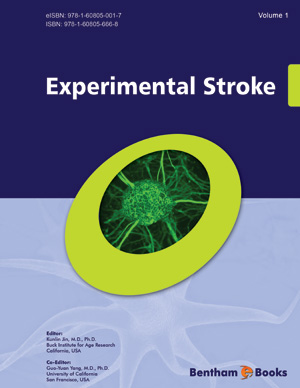Abstract
Matrix metalloproteinases (MMPs) comprise a family of zinc endopeptidases that play major roles in the physiology and pathology of the mammalian central nervous system (CNS). These proteinases are evolutionarily conserved as modulators of extracellular matrix during CNS development. After acute tissue injury such as that which occurs after stroke, MMPs become dysregulated and subsequently mediate acute neurovascular disruption and parenchymal destruction. Animal studies have demonstrated their participation in breakdown of neurovascular matrix and blood-brain barrier disruption with edema and/or hemorrhage. Moreover, perturbation of extracellular homeostasis triggered by MMPs may underlie processes responsible for the hemorrhagic complications of thrombolytic stroke therapy. Conversely, biphasic roles for some MMPs have been established since emerging data also suggest that some aspects of MMP activity during the delayed neuroinflammatory response may contribute to remodeling and stroke recovery.






















